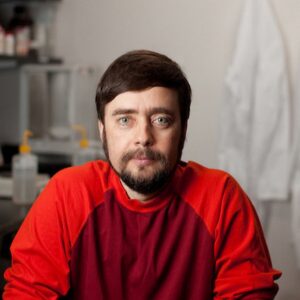⭐KEYNOTE: Self-constructing bodies, collective minds: the intersection of computer science, biomedicine, and philosophy
Michael Levin, PhD.Auditorio Carlos Graef
The journey from a single cell - a quiescent blob of chemistry and physics - to the embodied advanced mind of an adult - is a slow, gradual, transformative process. In this talk, I will describe a view of this process as the up-scaling of a collective intelligence that self-assembles and projects its goal-seeking, problem-solving competencies across physiological, anatomical, behavioral, and linguistic spaces. I will describe my framework for the study of diverse intelligence, using biological morphogenesis as a model system in which we can learn to recognize, communicate with, and ethically relate to unconventional minds. I will describe our progress toward applications in regenerative medicine and synthetic bioengineering (the construction of novel forms of life) as empirical tests of these ideas, and discuss how philosophy of mind, computer science, cognitive behavioral science, and developmental biophysics merge together at this fascinating nexus. I will compare and contrast conventional computational approaches with the very different kind of architectures employed by life, and discuss the implications of a future in which we can create a synthbiosis with a wide range of forthcoming natural, engineered, and hybrid sentient beings.

